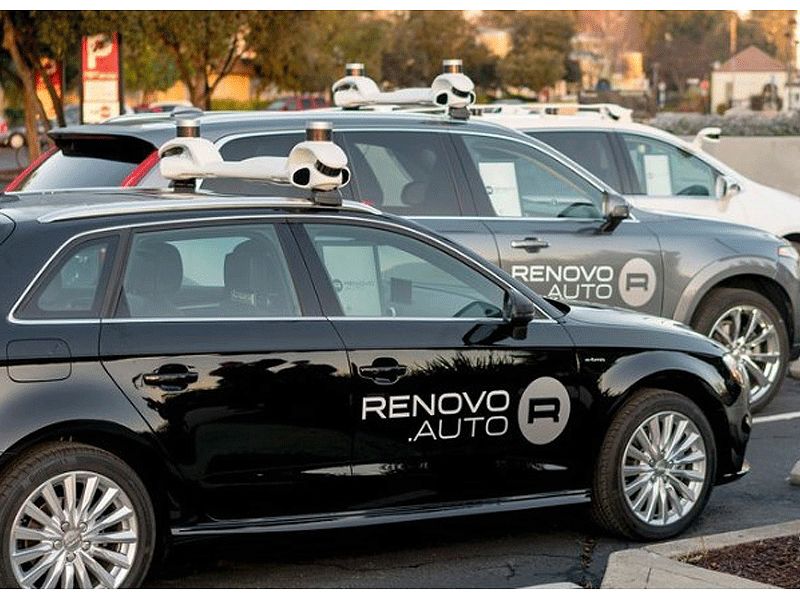
TOKYO — On the move with yet another buyout, Toyota Motor Corp.’s Woven Planet automated-driving subsidiary has acquired a U.S. software company it says will jump-start the Japanese company’s ambitions to make an operating system for the “programmable cars” of tomorrow.
The purchase of Renovo Motors Inc., made public on Tuesday, delivers a set of cutting-edge software tools that will shave months, if not years, off Woven Planet’s timeline for bringing the operating system to market, Woven Planet CEO James Kuffner said in announcing the deal.
“With Renovo coming on board we have this big, big boost of energy and talent to really push forward,” Kuffner told reporters. “I am really optimistic that we will pull forward our plans.”
Woven Planet’s upcoming automotive operating system, called Arene, is pitched as an open software platform that will allow for “programmable cars.” Woven hopes to offer it to other companies. Woven Planet says it will be as groundbreaking as Microsoft Windows and Apple iOS were for personal computers and smartphones, ushering in a new era for automobiles.
Kuffner said Woven Planet is already operating Arene in proof-of-concept vehicles and preproduction cars. It now expects to bring the software platform to the market by 2025, he said.
Woven Planet did not disclose how much it was spending on the acquisition of Silicon Valley-based Renovo. But the deal adds Renovo’s staff of 30 employees to Woven Planet’s growing global payroll, which has eclipsed 1,100 people, thanks partly to a rapid expansion strategy.
The Renovo deal is Woven Planet’s third major acquisition this year, as part of a growth strategy Kuffner has dubbed “go big or go home.” This month’s investment follows July’s purchase of Carmera Inc., an American high-definition digital mapping company. And that came on top of a $550 million buyout in April of Level 5, the self-driving car unit of ride-hailing giant Lyft.
Selling software and services
Woven Planet’s mission is to make Toyota, the world’s biggest automaker, as strong in software as it is in hardware. The goal is based on the idea that future value will come from selling software and services, not from manufacturing the metal and rubber of the vehicles themselves.
Woven Planet also has a venture fund, Woven Capital, that is snapping up shares in promising new technologies. The fund announced its first outlay in March, an equity stake in Nuro Inc., the robotics company that is developing four-wheeled autonomous delivery runabouts.
Arene is a critical part of Woven Planet’s vision for cars of the future and hinges on a “software first” approach. The strategy calls for first engineering an overarching software platform and then building automotive hardware that can be compatible with the system as the software updates.
Three elements
Arene consists of three elements that will make it a self-contained platform.
First, there is the embedded software on the car that runs everything from the advanced driver-assist systems to the digital cockpit controls. Then, there is a cloud component that handles all the data being transmitted from the vehicle.
Finally, there is a set of software tools that allow developers to test, deploy and update the software systems in the vehicles and in the cloud.
The approach is a nod to the reality that today’s cars, programmed with hundreds of millions of lines of code, are essentially rolling computers. The complexity of these on-board systems is spiraling exponentially as cars use more chips and more code, and as they increasingly collect massive amounts of data from the on-board sensors that monitor the world as they drive down the street.
A central challenge to keeping software updated and reliable is how to process all that data. And that is where Renovo fits in with its software system that dices and analyzes the digital river.
The sheer volume of data puts a premium on systems that can detect bugs and sort out the important bits from the drab — thereby ensuring that the new automotive operating system software has bulletproof reliability. Software platforms that run automobiles, where people’s lives are at stake, can’t afford the kind of glitches people tolerate in their smartphones.
Perfect partner
Renovo’s speed and accuracy in this technology make it a perfect partner, Kuffner said.
“We want really, really rock-solid stability. So we have to invest in that kind of production quality,” Kuffner said. “If we’re talking about advanced safety, the automated-driving features of the future, how can I respond to the huge multidimensional complexity of our world of traffic? The only way is to have very powerful tools that scale much better than manual testing.”
The creation of Woven Planet was announced last year as a holding company to subsume the subsidiary that handles Toyota’s automated-driving development, Toyota Research Institute – Advanced Development, or TRI-AD. Among its other projects is a smart community dubbed Woven City. Announced in 2020 as a real-world test lab for future mobility and urban connectivity, the company broke ground on its 170-acre site in the foothills of Mount Fuji in February.

